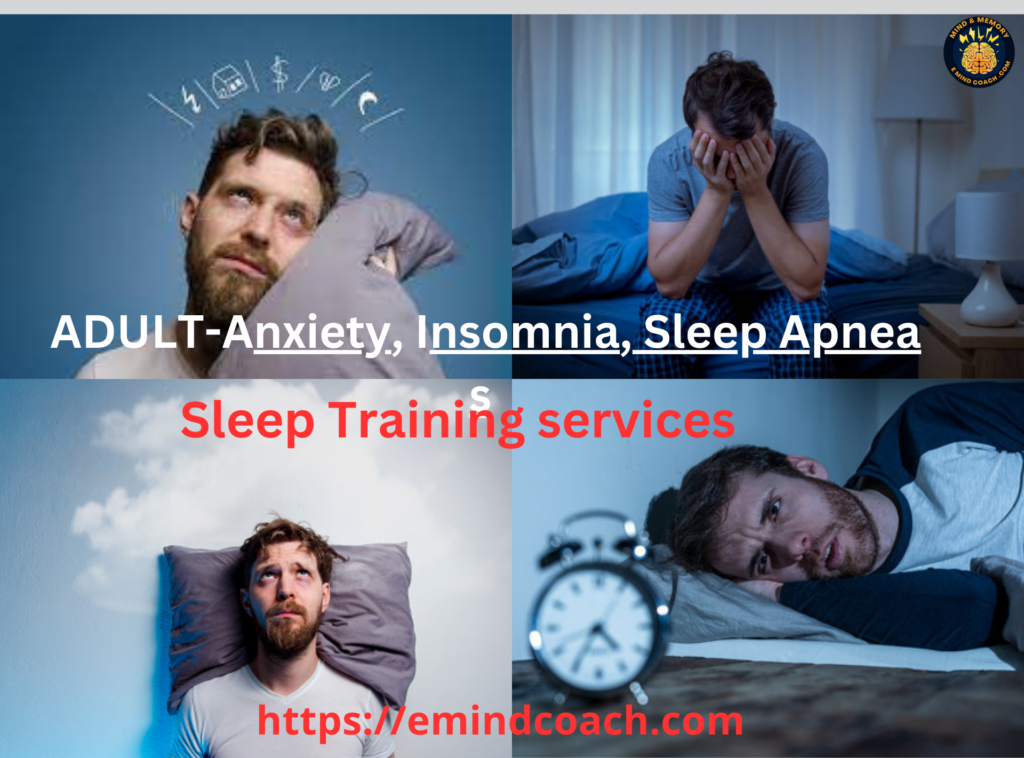Secrets of a Healthy Life
Safe Sleep 7: Healthy Life And The Immune System,
Getting safe sleep 7 hours of quality sleep is essential for your healthy Mind and well-being.
Without Good Quality and 7 hours sufficient Sleep, your body and mind can’t function at their best, and you may experience a range of adverse health outcomes.
Safe Sleep 7 Hours Good Quality Sleep: A healthy life improves the immune system A lack of Good Quality sleep in a Healthy Life can impair your immune system increase your risk of chronic diseases, affect your cognitive function, and lead to mood disturbances and decreased overall quality of life. Conversely, getting enough sleep can help restore and rejuvenate your body, improve your cognitive function, regulate your mood, and enhance athletic performance. Therefore, it’s essential to prioritize sleep and create healthy sleep habits to get the amount and quality of sleep your body needs to function optimally.
Good Quality Sleep for Healthy Life: Maintaining Good Physical and mental health
Safe Sleep 7 Hours is crucial for maintaining good physical and psychological health. There are some ways in which sleep is essential for your overall well-being:
Safe Sleep 7 for Hours: Restores and rejuvenates the body
While you sleep, your body works to repair and rejuvenate itself. This helps to strengthen your immune system, repair damaged tissues, and reduce inflammation.
Safe Sleep 7 Hours: Improves cognitive function
Safe Sleep 7 Hours Improves cognitive function: Good Quality Sleep for a healthy life is essential in consolidating memories, processing information, and enhancing learning and creativity. A good night’s sleep can improve your ability to concentrate, solve problems, and make decisions. It affected cognitive function(see article for more information) and overall brain-memory-related work affected
Safe Sleep 7 Hours Good Quality Sleep Reduces the risk of chronic diseases
Sleep deprivation has been linked to an increased risk of chronic health conditions such as heart disease, diabetes, and obesity. Getting enough sleep helps regulate hormones important for maintaining a healthy metabolism and preventing these diseases.

Sleep: Related diseases
Insomnia is a sleep disorder
Sleep apnea is when a person’s breathing repeatedly stops and starts during sleep. It can lead to loud snoring, gasping, and choking during sleep and can cause daytime sleepiness, poor concentration, and an increased risk of high blood pressure, heart attack, and stroke.
Narcolepsy:
Narcolepsy is a neurological disorder that affects the brain’s ability to regulate sleep-wake cycles. It can cause excessive daytime sleepiness, sudden bouts of sleep, sleep paralysis, and vivid hallucinations.
Restless legs syndrome (RLS)
RLS is a neurological disorder characterized by an uncomfortable sensation in the legs, which can only be relieved by movement. It often occurs at night and can lead to difficulty falling asleep and staying asleep.
Circadian Rhythm Disorders
Circadian rhythm disorders are conditions that disrupt the body’s natural sleep-wake cycle. Examples include jet lag, shift work sleep disorder, and delayed sleep-wake phase disorder. These conditions can lead to sleep disturbances, daytime fatigue, and difficulty functioning during waking hours.
These sleep-related diseases can significantly impact a person’s quality of life and overall health. Therefore, it’s essential to prioritize healthy sleep habits and seek medical attention if you experience persistent sleep disturbances or symptoms of a sleep disorder. Sleep disorders can have various causes and can result from a combination of factors, including:
Lifestyle factors:
Poor sleep habits such as irregular sleep schedules, excessive caffeine or alcohol consumption, and sedentary behavior can disrupt your body’s natural sleep-wake cycle and lead to sleep disorders.
Medical conditions
Certain medical conditions such as obesity, diabetes, and heart disease can contribute to sleep disorders. Sleep disorders may also be a symptom of other medical conditions such as depression, anxiety, or chronic pain.
Medications
Certain medications can affect your sleep, disrupting your sleep-wake cycle or causing side effects such as insomnia or daytime sleepiness.
The pattern of Brain waves in sleep
The brain waves observed on an EEG (electroencephalogram) represent the electrical activity in the brain. These brain waves have different frequencies and amplitudes, and they correspond to various stages of the sleep-wake cycle.
- Alpha Waves: These waves are typically observed when a person is in a relaxed and resting state, but still fully conscious. They often occur when the eyes are closed, and the body is relatively still. Alpha waves are associated with a slowing down of brain activity.
- Beta Waves: Beta waves take over when a person is in an alert and active state. They have the highest frequency and the lowest amplitude among brain waves. Beta waves are usually present when someone is engaged in activities that require attention, focus, or completing tasks.
- Gamma Waves: These brain waves are associated with high levels of concentration and focus. They are observed when a person is intensely focused on a specific task or during moments of heightened cognitive processing.
- Theta Waves: Theta waves are present when a person is awake, and they continue into the initial stages of sleep, including Stage 1 and Stage 2. They are typically associated with drowsiness and light sleep.
- Delta Waves: Delta waves are the slowest brain waves with the highest amplitude. They are predominantly seen during deep sleep stages, specifically during Stages 3 and Stage 4 of the sleep cycle. Delta waves are essential for restorative sleep and physical rejuvenation.
Friends, Throughout the sleep cycle, the brain goes through various stages, and these brain waves provide insights into the different phases of sleep. Each stage serves a specific function in maintaining overall health and well-being. Understanding the patterns of brain waves during sleep can be valuable in diagnosing sleep disorders and assessing sleep quality.
Environmental factors
Environmental factors such as noise, light, and temperature can also affect your ability to sleep.
Safe Sleep 7 Hours of Good Quality Sleep is essential for Healthy life and Minds
Psychological factors
Stress, anxiety, and other healthy Minds psychological factors can disrupt sleep and lead to sleep Apnea, Difficulty staying asleep, and sleep disorders. Identifying the underlying cause of a sleep disorder, Sleep Apnea, and Difficulty staying asleep is essential to determine the appropriate treatment. Treatment options for sleep disorders may include lifestyle changes, medication, or therapy, depending on the type and severity of the disorder, Sleep disorders, lack of sleep, gut microbiota digestion system getting disturbed, and its affected gut microbiota also can have a significant impact on personal, family, and social relationships. Here are some ways in which sleep disorders can affect these relationships:
Personal relationships:
Sleep disorders can lead to irritability, mood swings, and decreased libido, which can strain personal relationships with partners, family members, and friends. They can also lead to feelings of frustration, guilt, and low self-esteem, which can further impact on Healthy Body, Healthy Mind, personal relationships
Family relationships:
Sleep disorders can disrupt household routines, cause family members to feel stressed or anxious, and impact the quality of time spent together. This can lead to strained relationships with spouses, children, and extended family members.
Social relationships:
Sleep disorders can affect a person’s ability to participate in social activities, leading to feelings of isolation, loneliness, and disconnection from others. They can also impact a person’s ability to perform well at work or school, leading to further social and interpersonal difficulties.
Safety concerns:
Sleep disorders can also have safety implications. For example, sleep apnea can lead to excessive daytime sleepiness, increasing the risk of accidents or injuries while driving or operating heavy machinery.
Decreased productivity:
Sleep disorders can lead to daytime fatigue, decreased concentration, and impaired cognitive function, impacting a person’s ability to perform work-related tasks effectively. its decreased overall productivity of the person,
Increased errors:
Sleep disorders can increase the likelihood of errors or mistakes at work, especially in jobs that require attention to detail or critical thinking skills.
Absenteeism:
Sleep disorders can lead to increased absenteeism due to fatigue or related health issues.
Career implications:
Chronic sleep disorders can impact a person’s career trajectory and opportunities, especially if they lead to poor job performance, increased absenteeism, or safety concerns.
Conclusion:
Friends, Sleep disorders can have a significant impact on personal, family, and social relationships, as well as a person’s overall well-being. Seeking treatment for sleep disorders can improve sleep quality, mood, digestion, gut-brain-related problems and overall health, leading to better relationships with loved ones and increased participation in social activities.
FAQs
Sleep and Sleep Disorders
Why is Safe Sleep 7 Hours important for overall health and well-being? Sleep is vital in promoting physical, mental, and emotional well-being. It helps rejuvenate the body, enhance cognitive function, reduce the risk of chronic diseases, regulate mood, and improve athletic performance.
How does lack of sleep affect the immune system? A lack of sleep can weaken the immune system, making individuals more susceptible to illnesses and infections. Sufficient sleep supports immune system function and strengthens overall immunity.
What are some common sleep disorders? Common sleep disorders include insomnia, sleep apnea, narcolepsy, restless legs syndrome (RLS), and circadian rhythm disorders. These disorders can significantly impact sleep quality and overall health.
What are the potential causes of sleep disorders? Sleep disorders can be caused by various factors such as poor sleep habits, medical conditions (e.g., obesity or diabetes), certain medications, genetic predisposition, environmental factors, and psychological factors like stress or anxiety.
How can sleep disorders affect personal relationships? Sleep disorders can lead to irritability, mood swings, and decreased libido, which can strain personal relationships. They can also cause feelings of frustration, guilt, and low self-esteem, impacting interactions with partners, family members, and friends.
How can sleep disorders impact family and social relationships? Sleep disorders can disrupt household routines, create stress or anxiety within the family, and reduce the quality of time spent together. They can also lead to social isolation, decreased participation in social activities, and difficulties at work or school.
What are the potential effects of sleep disorders on work performance? Sleep disorders can cause daytime fatigue, decreased concentration, impaired cognitive function, and increased risk of accidents or errors at work. They can result in decreased productivity, increased absenteeism, and potentially impact career opportunities.
How can sleep disorders be treated? Treatment for sleep disorders may involve lifestyle changes, medication, or therapy, depending on the type and severity of the disorder. It’s important to consult with a healthcare professional for an accurate diagnosis and personalized treatment plan.
Can treating sleep disorders improve relationships and overall well-being? Yes, seeking treatment for sleep disorders can improve sleep quality, mood, and overall health. By addressing sleep issues, individuals can experience better relationships with loved ones, increased participation in social activities, and improved job performance and productivity.
When should I seek medical attention for sleep disturbances? If you experience persistent sleep disturbances, such as difficulty falling asleep or staying asleep, excessive daytime sleepiness, or symptoms of a sleep disorder, it is recommended to consult a healthcare professional for a proper evaluation and guidance.
Please note that the information provided here is for informational purposes only and should not replace professional medical advice. If you have specific concerns or questions about your sleep or sleep-related issues, pls contact a healthcare professional for medical advice.
About Author:

Ramakant N. is been busy with online Coaching, He has been doing research and writing a blog in Career, mental health as well as Social Psychology Topics. he spent 10 years in skill development training and He has been researching Yoga, Breathing Technique, Memory, Sleep disorder,Mind- Health and Social Psychology since last 5 years. he recently stepped down from a senior position in his Coaching Business and NGO.

2 thoughts on “Safe Sleep 7”